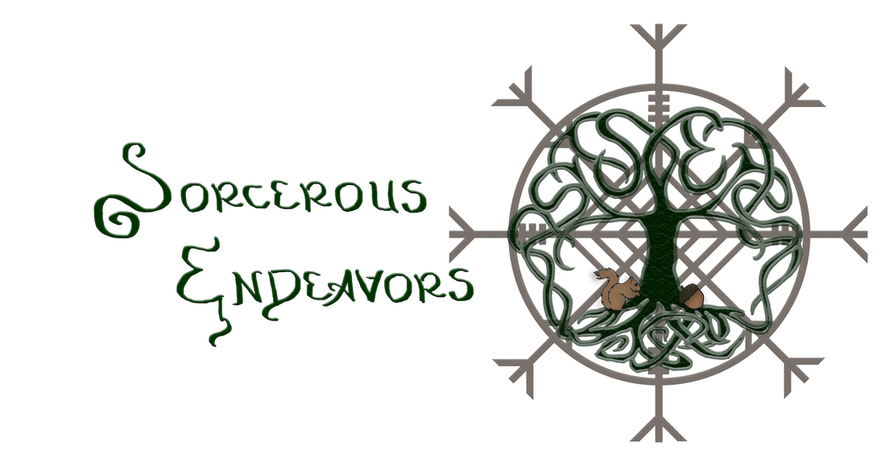The first tool is compassion: non romantic, genuine caring love felt for another without thought of self. It’s a warm, fuzzy emotion that’s rooted in care and concern for other living beings. It’s largely unselfish in its nature, and its formation and experience is a whole lot like magick. It exists for its own sake, and yet it is not self-perpetuating without our own efforts to the contrary. Compassion takes work at first, and it’s something we must endeavor to create, for it is a virtue with a baked-in irony attached: the more we need it’s influence, the harder it is for us to create.
I invite you to take this opportunity to consider the content of your thoughts each day. On an average day, how complimentary are you? How critical? How do the two compare? If you were to take a tally, which category wins out? Once you know this answer, take stock of the thoughts you direct at yourself. Are you often very self-critical and hateful towards the person you see in the mirror? It pretty common to notice a trend: those who are super caring and actively kind tend to be a bit less terrible to themselves. The same is true in the reverse, and those who reach for judgement in their day to day tend to be more self-critical too.
Compassion works your brain differently, and it forces your synapses to function in a different way. Where there’s less antagonism externally, there’s usually less going on internally, and so life is improved across the board for you and for others around you. Additionally, when you have learned to patients care for others without judgement, you can learn to be compassionate with yourself. Recognizing that you’re doing your best and that you’re trying is a damn impressive improvement over some of the incredible anxieties and depressions I’ve been hearing about from others.
If you’d like to look for a way to become more compassionate, find ways to compliment people. Figure out what you really LOVE to see and make note of it. Say nice things to those responsible and watch how they are affected and respond. In person, pre-COVID I’d have folks genuinely surprised to receive a compliment, almost taken aback at the idea. It’s that uncommon for most of us, so if we choose to develop this skill, it’ll allow us to connect more readily with others.
The second tool is vulnerability: being willing to take down those walls around you and let others in. Show of hands: how many of you are pretty open with your friends and family? How many of you keep it all to yourselves for one reason or another? If you feel like there’s things you CANNOT share, there’s some element of you and your existance that does not or will not experience vulnerability.
Being vulnerable is as simple as being willing to ask for help. It’s as simple as letting others in to know more about who we are. Not just on the surface, but deep down. When we let others in, we offer a piece of ourselves up to connect with them. When we do this, we lose some of the pretense by and through meaningful disclosure to trusted persons. When we share a little, we invite another person to do the same, and through this we can build a rapport. Do more of this and you’ll find yourself closer with those you care about. Good or bad, we all process victory and loss together. This is how we act as the social species we are, and practicing this how we re-wire our own social structures in a way that benefit us and others involved.
The third tool is gratitude: being thankful and appreciative. Showing gratitude & making it a habit re-wires the brain and it has demonstrable effects on trauma recovery. It’s been shown to increase general feelings of wellness, decrease anxiety, improve heart health, allow for better sleep, and aids metabolic function by way of activating the hypothalamus (the part of the brain that controls hormone regulation functions), making gratitude a literal mindhack that you can access for free.
All it takes is a little bit of extra mindfulness and a willingness to address your behaviors and habits. These are three extremely accessible tools, and they can each be applied as building blocks in your life to create sweeping improvements. Learning to be kind, learning to be gracious, and learning to be truly open with others changes how the quintessence of Self is presented to the world, and it’s a profoundly healing experience backed by science and mysticism alike, and I would strongly urge you to apply these tools each and every day!
Use this newfound awareness to change how you relate to the world, and use that improvement to validate your own existence. Connect with other people to connect with yourself, and you’ll find that every one of us is capable of simple, yet powerful changes.
Sending love & blessings,
Chris
